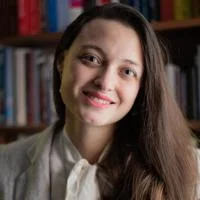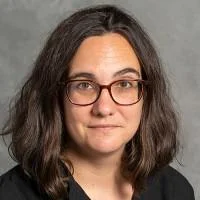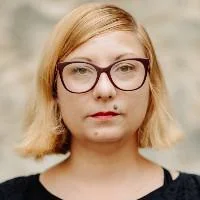Writers' Workshop

Deliberation and Anti-Deliberation: Addressing Polarising Issues in the Western Balkans
The workshop will gather scholars working on Western Balkans and innovate by applying the framework of deliberative democracy to the discussion of polarising issues, such as transitional justice, radicalisation, environmental conflicts, education, minority rights, LGBT rights, etc.
Organised under the auspices of the research programme funded by the European Research Council (ERC), titled: ‘Justice Interactions and Peacebuilding (JUSTINT)'
Date: Monday 24 June 2024
Venue: The London School of Economics and Political Science
Room:Vera Anstey Room, Old Building (between ground and first floor)
To learn to more about the ERC-funded JUSTINT project, see .
The Agenda is available here: 20240624 WritersWorkshopAgenda_JUSTINT.

Stefano Bianchiniis an independent scholar. He was Professor of East European Politics and History at the University of Bologna until October 2023 when he retired. From 2015 to 2021 he served as Rector’s delegate for relations with Eastern Europe. Previously, he coordinated the two-years Interdisciplinary MA in East European Studies (MIREES), a joint diploma of the Universities of Bologna, St. Petersburg, Vytautas Magnus at Kaunas, and Corvinus of Budapest. He is visiting professor of the State University of St. Petersburg and holds a H.D. in Humanities of the Vytautas Magnus University, Kaunas. From 2001 to 2018 he was also the co-director of the European Regional Master in Democracy and Human Rights for SEE (ERMA) awarding a double diploma of the Universities of Sarajevo and Bologna. He is a member of the Advisory Boad and former Vice president of the Association for Studies of Nationalities (ASN) based at the Harriman Institute, Columbia University, New York and Executive Editor of the blind peer-review journal "Southeastern Europe", (Brill, Leiden) and other academic journals.
As an expert of Balkan issues, he was an adviser of the ICTY, in the Hague. He published and co-edited 39 books and more than 200 articles in different languages. He is the author, among others, of Liquid Nationalism and State Partitions in Europe, Edward Elgar, London-New York, 2017; Eastern Europe and the Challenges of Modernity 1800-2000, Routledge, Abingdon-New York, 2015; La Question Yougoslave (Castermann, 1996) and co-editor of Rekindling the Strong State in Russia and China, together with Antonio Fiori (Brill, Leiden, 2020).

Mirza Buljubašićis a criminologist with PhD, MA, and BA in Criminology, along with degrees in Criminal Law and Security Studies, all with honors. He is a research fellow at the Netherlands Institute for the Study of Crime and Law Enforcement. His career spans roles as a research consultant, research supervisor, and researcher, focusing on political violence, encompassing atrocity crimes, terrorism, and extremism, as well as issues of punishment, transitional justice and intergenerationality.

Venera Cocajis a PhD Candidate at the European Institute, London School of Economics and Political Science. Her PhD research is part of a larger scientific research project, ‘Justice Interactions and Peacebuilding: From Static to Dynamic Discourses across National, Ethnic, Gender and Age Groups,’ funded by the European Research Council. Her research focuses on wartime sexual violence and gender-based violence in Croatia, Bosnia and Herzegovina and Kosovo. Venera was responsible for research for the documentary ‘The Sky is Turning,’ which was the recipient of the 2018 Human Rights Award for the best journalistic piece, awarded by the Balkan Investigative Reporting Network Kosovo. Previously, she was the head of research at ORCA, an organization which focuses on academic integrity at the University of Prishtina, and worked as human rights programme manager at the non-governmental organisation, Youth Initiative for Human Rights-Kosovo. She also contributed and led projects on education, human rights, women and LGBT rights, and transitional justice in the Balkans. She is actively involved in the feminist and human rights movements/initiatives in Kosovo and in the Balkans.

Elodie Douarin is an Applied Economist. She received a PhD in Economics from the University of London (Wye College) in 2008, and joined SSEES UCL in 2012, after a post-doc in the Economics department of the University of Sussex focusing on the micro consequences of conflict. She also worked as a researcher at Kent University (2007-2009) and as online tutor at SOAS (2008-2014). Her recent work has focused on social norms, with two main streams: one investigating the factors that shape social norms, and a second examining how social norms and individual beliefs impact on behaviours, either in the economic or political sphere. She started working on Kosovo in 2010, while a post-doc on an EU-funded project focusing on the micro consequences of conflict. She has published on the impact of war on livelihood choices and on the impact of war victimisation on political participation. In other strands of her research, she has been working on social norms relating to gender roles, and their impact on women’s engagement with work outside of home, and the links between individualistic values and pro-sociality, or using wellbeing measures to assess people’s tolerance towards corruption.

Irena Fiketis a Senior Research Fellow and academic coordinator of the Laboratory for Active Citizenship and Democratic Innovations at the Institute for Philosophy and Social Theory, University of Belgrade. Her current research interests lie in deliberative democracy, citizens’ participation, democratic innovation and social movements and gender. On those topics she edited 4 books, published two books and numerous book chapters as well as articles in journals such as Southeast European and Black Sea Studies, Italian Political Science Review, Javnost—The Public, European Union Politics, and others. She has been involved in numerous international projects, and she has most recently served as the academic coordinator of the Jean Monnet Network 'Active Citizenship: Promoting and Advancing Innovative Democratic Practices in the Western Balkans' and principal investigator of the Serbian team for a Horizon 2020 project, EnTrust.
Vujo Ilićis a Research Fellow and Assistant Director at the Institute for Philosophy and Social Theory, University of Belgrade. He earned his PhD in political science from Central European University in Budapest, specializing in comparative politics. His research focuses on democracy, elections, political participation, conflicts, and violence, particularly in Southeast Europe. He has been involved in several European Commission-funded projects, such as Nets4Demand EnTrust, and has served as a consultant for various international organizations. Most recently, he co-edited "Participatory Democratic Innovations in Southeast Europe: How to Engage in Flawed Democracies" (Routledge, 2024) and contributed to "Civic and Uncivic Values in Hungary: Value Transformation, Politics, and Religion" (Routledge, 2024). His articles have appeared in journals including Southeast European and Black Sea Studies, Contemporary Southeastern Europe, and Philosophy and Society. He received the Central European University Best Dissertation Award and the Association for the Study of Nationalities Best Doctoral Paper Award.

Sanja Kajinić, PhD (CEU, Budapest, 2014) is an Adjunct professor at the Department of Politicaland Social Sciences at the University of Bologna, teaching Bosnian Croatian Serbian language,as well as a module on Gender and Popular Culture in Southeast Europe. At the Department ofCultural Heritage of the same university, she has also taught a course on the History of theBalkans. Her research interest focuses on the politics of memory and history of socialmovements in South Eastern Europe. She is the author of the monograph Post-Yugoslav QueerFestivals (Palgrave Macmillan 2019) and has written several articles on the post-Yugoslav socialand cultural history. As a recipient of the Marie Curie Early Stage Training Fellowship, she spent2007/2008 academic year at the Women’s Studies Center at the Department of InternationalRelations of the University of Lodz in Poland. She has participated in the research projects"GACY '68: A Game-changing year - Czechoslovakia and Europe in 1968" as well as the project"Democratization and Reconciliation in the Western Balkans'' within the Jean Monnet Network.She is a member of the Italian Society of Women Historians (SIS), of the AWSS (Associationfor Women in Slavic Studies), and of the Association for Cultural Studies.

Damir Kapidžić is an Associate Professor of Comparative Politics at the Faculty of Political Science at the University of Sarajevo, a Visiting Scholar at Harvard University’s Weatherhead Center for International Affairs, and a Fulbright Visiting Scholar. His research examines how democratic and authoritarian politics are institutionalized in the context of ethnic conflict, power-sharing, and democratic innovations. He focuses on the processes in Southeast European countries with comparative perspectives from Southeast Asia, East Africa, and the Middle East. He is a consultant on deliberative processes for the Council of Europe, and has designed and advised several deliberative processes and citizens’ assemblies in Southeast Europe, where post-conflict environment overlaps with substantial religious diversity. He is a member of the Balkans in Europe Policy Advisory Group and a principal investigator of EU Horizon—Contexts of Extremism in MENA and Balkan Societies, and an editor of 'Illiberal Politics in Southeast Europe: How Ruling Elites Undermine Democracy' (Routledge, 2022).

Denisa Kostovicova is Associate Professor of Global Politics at the European Institute at the London School of Economics and Political Science. She is a scholar of conflict and peace processes with a particular interest in post-conflict reconstruction and transitional justice. She is the author of Reconciliation by Stealth: How People Talk about War Crimes(Cornell, 2023) and Kosovo: The Politics of Identity and Space(Routledge, 2005). Dr Kostovicova co-edited 8 volumes, including Rethinking Reconciliation and Transitional Justice After Conflict (Routledge, 2018). Dr Kostovicova’s research has been funded by a number of prestigious grants, including those by the Leverhulme Trust, MacArthur Foundation and Arts and Humanities Research Council (AHRC), among others. Her academic research has been published widely in world-leading scholarly journals, such as International Studies Quarterly, Security Dialogue, Review of International Studies, Third World Quarterly, Qualitative Research and International Journal of Transitional Justice. Dr Kostovicova currently directs a major research programme funded by the European Research Council (ERC), titled ‘.’ She has authored a number of policy papers on issues concerning Western Balkans’ European integration, post-conflict recovery and regional security. Her academic research and policy contributions have informed policy making at the EU, UN, and in the UK. Dr Kostovicova has a PhD from the University of Cambridge. Prior to joining LSE, she held junior research fellowships at Wolfson College, Cambridge and Linacre College, Oxford.

Julie Litchfieldis a Senior Lecturer in Economics in the Department of Economics at the University of Sussex. She is an applied microeconomist with over twenty years of teaching, research and leadership experience. The focus of her research is the study of poverty, inequality and income distribution, in particular how welfare is affected by a) migration and b) conflict. She was a Work Package Leader for the EU-funded MICROCON programme leading a team researching the relationship between conflict and poverty, and as part of this work analysed the impacts of conflict on livelihoods and welfare in Kosovo. She was also a Co-Investigator and Theme Leader with Sussex's Migrating out of Poverty Research Centre, funded by DFID, with projects running in Ghana, Zimbabwe, Ethiopia, Bangladesh, Indonesia, focussed on analysing the links between poverty and migration. Her current research is focussed on the analysis of the impacts of wartime experiences on political participation, values and attitudes. She holds a British Academy grant with Elodie Douarin using experimental methods to collect primary data on wartime sexual violence in Kosovo to uncover the extent of bias in reporting and to explore the mechanisms that link traumatic experiences with political participation.

Nenad Markovilkj, PhD is a tenured professor at the political science department of the Law Faculty "Iustinianus Primus" in Skopje. He is one of the founders of one of the biggest think-tanks in North Macedonia – the Institute for Democracy "Societas Civilis" – Skopje (IDSCS) and an associate researcher of the Prespa Institute. He is a member of the editorial board of the biannual political journal "Political Thought" published by IDSCS and the Konrad Adenauer Foundation in Skopje. Prof. Markovikj is a former president of the Macedonian political science association (MPSA) and one of the founders of the Balkan political science association (BPSA). In the period between 2019 and 2024 ne was a member of the Security Council of the Republic of North Macedonia.

Gjylbehare Bella Muratiis an Assistant Professor of International Human Rights Law at Haxhi Zeka University, Kosovo. She earned her PhD from Ghent University, Belgium, her LL.M. from Essex University, UK, and her B.A. from the Universities of Prishtina, Kosovo, and Utrecht, Netherlands. Her prior roles include serving as an associate postdoctoral research fellow at the Human Rights Centre in Ghent, Belgium, and as a research fellow at the Max Planck Institute for Comparative Public Law and International Law in Heidelberg, Germany. Before embarking on her academic career, she garnered experience in various national and international organizations. Murati specializes in human rights and the rule of law in post-conflict societies, state-building, international organization accountability, and transitional justice.
Valida Repovac Nikšić is an Associate Professor at the Department of Sociology at the Faculty of Political Sciences, University of Sarajevo. She used to work in the Directorate for European Integration, Council of Ministers of Bosnia and Herzegovina. She graduated from the Faculty of Philosophy, University of Sarajevo. She did her Master's thesis in Political philosophy within the European Regional Master's Program in Democracy and Human Rights in South-East Europe, University of Sarajevo, University of Bologna. In academic 2010-2011, she was visiting Ph.D. Candidate within the Fulbright Program at the University of California, Berkeley. In 2014. Valida obtained a Ph.D. in sociology from the Faculty of Political Sciences, University of Sarajevo. Her research interests include Political Sociology, Political Theory, and Critical Social Theory. Her work focuses on cosmopolitanism, multiculturalism, active citizenship, and democratic innovations. She published a book titled On Cosmopolitanism – Theoretical Debates. She is the academic coordinator of ERASMUS Mundus IMCEERES for the University of Sarajevo, in partnership with the University of Glasgow and the University of Tartu, Estonia. She is a Vice-Dean for Science and Research.
Latest:
2022. "The Social Movement for Truth and Justice - Pragmatic Alliance-building with Political Parties in Bosnia and Herzegovina", Repovac Nikšić, Valida; Hasanović, Jasmin; Adilović, Emina; Kapidžić, Damir, Philosophy and Society 33(1), 143-161. https://doi.org/10.2298/FID2201143R
More on: https://orcid.org/0000-0002-0873-2586

Sabiha Shalais Full Professor of International and European Law courses and served six years as Vice-Rector for Academic Affairs and Research at the University of "Haxhi Zeka" Peja, Kosovo. Ms. Shala worked also a part-time professor at the European School of Law and Governance, and College of Business. She was mobility professor at the University of Cote D’Azur and University of Rome La Sapienza. Formerly, Ms. Shala served as Chief Executive officer in the Agency for European Integration at the Kosovo Prime Minister's Office, where she worked as a consultant on various projects with different international organizations such as EU, UNHCR, UNDP, and OSCE. She obtained a Ph.D. from the University of Nice Sophia-Antipolis in France. She holds an LL.M in International and European Law from the University of Riga, Latvia, and an additional specialization in the field of diplomacy from the Diplomatic Academy of Vienna. From May to July 2019, she was a post-doctoral researcher at the University of Graz in Austria. She participated in several national, regional and international scientific conferences. Her research interests include international public law, European Integration, International organizations, regimes, etc.

Ivor Sokolicis a Lecturer in Politics and International Relations at the University of Hertfordshire and a Visiting Fellow at the European Institute at the London School of Economics and Political Science. He contributes to the ERC funded project "Justice Interactions and Peacebuilding: From Static to Dynamic Discourses across National, Ethnic, Gender and Age Groups", which examines transitional justice processes across the former Yugoslavia. He holds a PhD from the UCL School of Slavonic and East European Studies and an MSc and BSc in European Politics from the Department of International Politics at the University of Wales, Aberystwyth. In 2019, Ivor published a book based on his research on Croatia, titled International Courts and Mass Atrocity: Narratives of War and Justice in Croatia (Palgrave MacMillan). He has published articles in Cooperation & Conflict, Nations & Nationalism, Nationalities Papers, Südosteuropa and The Croatian Political Science Review.

Ivana Stepanović is a permanent research fellow at the Institute of Advanced Studies Koszeg and lecturer at the University of Pannonia, Koszeg Campus in Hungary. She is the Academic Coordinator of the UNESCO Chair for Culture Heritage Management and Sustainability in Hungary. She holds a PhD in Anthropology from Faculty of Philosophy, University of Belgrade, Serbia, MA in Human Rights South-East Europe from University of Sarajevo, Bosnia and Herzegovina and University of Bologna, Italy and BA in Philosophy from Faculty of Philosophy, University of Belgrade, Serbia. Her teaching and research activities focus on reconciliation in former Yugoslavia, online activism, and the impact of artificial intelligence on societies.

Tara Tepavacis a Research Assistant at the Institute for Philosophy and Social Theory at the University of Belgrade (IFDT). She holds a joint MA degree in Interdisciplinary South-Eastern European studies at the Faculty of Political Sciences of the University of Belgrade and the Karl-Franzens-University in Graz and is currently pursuing her PhD in Law and Politics at the Karl-Franzens-University in Graz (Austria). Her research interest includes democracy, participation, and deliberation, focusing on the functioning of democratic institutions and processes in semi-authoritarian regimes and particularly on the role and performance of parliaments and independent bodies, as well as on democratic innovations and deliberative tools and processes. At IFDT, she is a member of the Laboratory for Active Citizenship and Democratic Innovations (ActiveLab), currently engaged in several research projects, including the Network of Networks for Democracy (Nets4Dem) funded by the European Commission through the Horizon Europe program. She has published several academic and policy papers, and coordinated a number of national, regional and international project in the civil society sector.